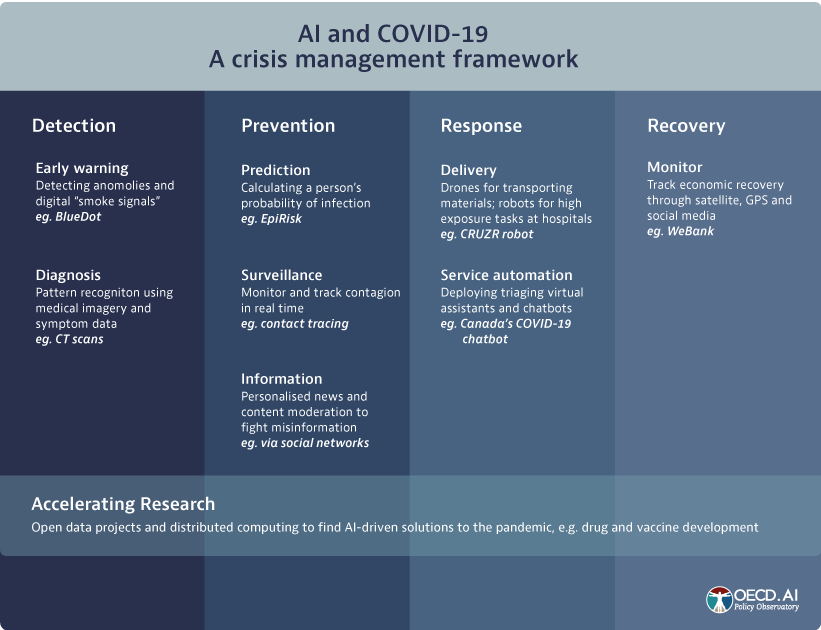Policy makers can enable AI for the fight against COVID-19
The OECD is providing policymakers with as much information as possible to facilitate their decision making.
The OECD is providing policymakers with as much information as possible to facilitate their decision making during the global COVID-19 crisis. Here are the key messages about using artificial intelligence to fight COVID-19.

How AI is helping combat COVID-19:
In the COVID-19 crisis response, AI technologies and tools are playing key roles to:
- Understand the virus and accelerate medical research on drugs and treatments.
- Detect and diagnose the virus, and predicting its evolution;
- Help to prevent or slow the virus’ spread through surveillance and contact tracing;
- Respond to the health crisis through personalised information and learning;
- Monitor the recovery and improve early warning tools.
What policy-makers can do to facilitate AI’s contributions to combating COVID-19:
- Policy makers must do everything possible to encourage data sharing and facilitate access to computers with the necessary computing capacity for AI research and technologies. AI is not a silver bullet and the outputs of machine learning based AI systems are only as good as the training data. All organisations need to share medical, molecular, and scientific datasets and models on collaborative platforms to help AI researchers build effective tools for the medical community.
- Policy makers must ensure that AI systems are trustworthy and aligned with the OECD AI Principles: they should respect human rights and privacy; be transparent, explainable, robust, secure and safe; and actors involved in their development and use should remain accountable. This is particularly true for temporary measures of population control and monitoring, as some AI systems raise concerns about purpose specification and the danger that personal data could be re-used in ways that infringe privacy and other individual rights.
Artificial intelligence can detect, respond to and help recover from COVID-19
As the COVID-19 outbreak is now a global pandemic, AI tools and technologies can help policy makers, the medical community, and society at large to manage each stage of the crisis: detection, prevention, response and recovery. It can also accelerate research (Figure 1).

For more details please visit the OECD’s website dedicated to tackling the coronavirus.

































